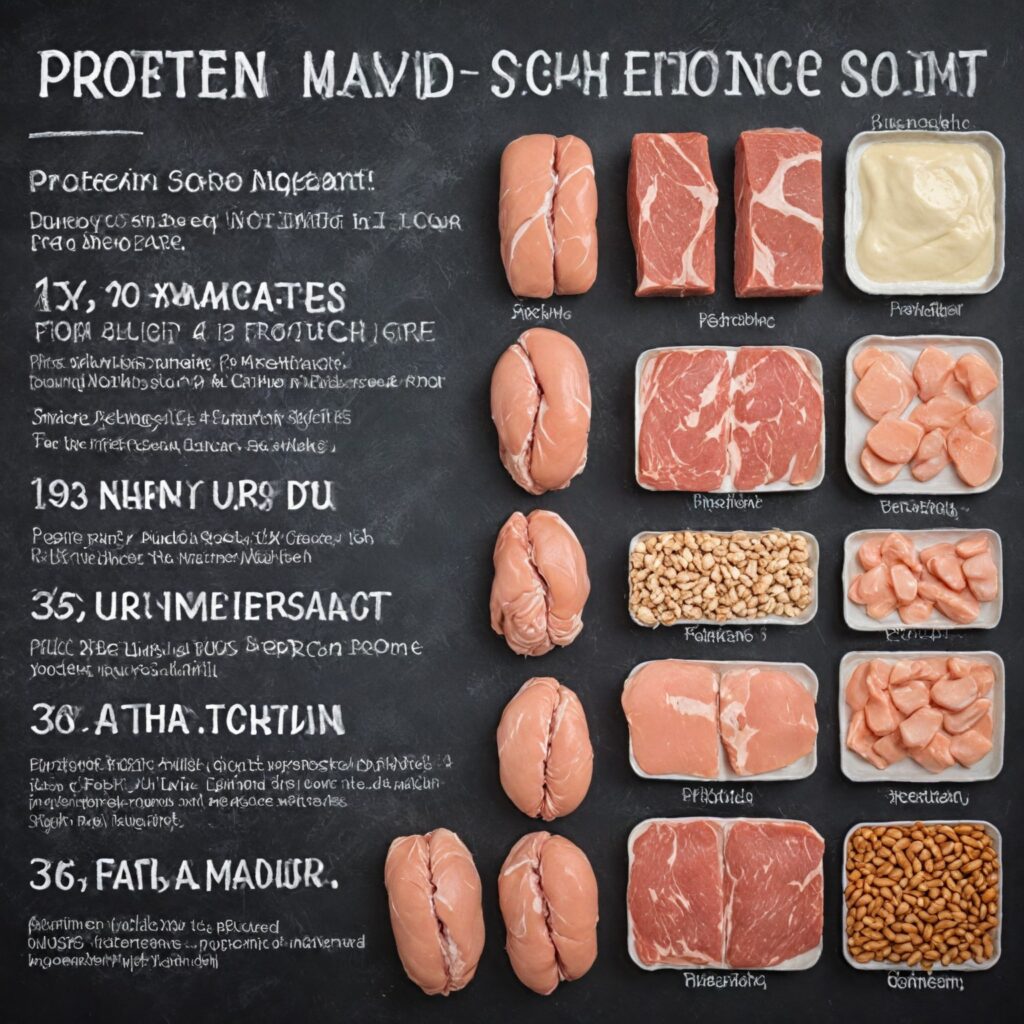The document is a detailed discussion about protein, its importance, and the science behind protein intake recommendations.

Introduction to Protein:
It seems like everyone, even health experts and fitness celebrities, is raving about protein these days. The paper highlights this increasing fixation, particularly with regard to the notion that eating a lot of protein can aid in weight loss and muscle growth. People are often being told to boost their protein intake in order to reach their fitness objectives, whether it be through protein drinks, bars, or meal planning. In the realm of health and wellness, it has grown to be a significant trend.
Importance of Protein:
Protein is crucial for keeping our bodies running smoothly. It helps create hormones, neurotransmitters, and forms the building blocks of muscles, skin, bones, and blood. This makes it vital for everyone, from kids who are growing to older adults who need to maintain their health. No matter your age, getting enough protein is key to staying strong and healthy.
Protein Deficiency:

Our health may suffer grave implications if we don’t consume enough protein. Our bodies are more likely to become ill, heal from wounds and illnesses more slowly, and even experience issues with our skin and hair if we don’t consume enough protein. Research conducted on animals, such as pigs, has demonstrated the importance of protein in preserving general health. These results emphasize how crucial it is to maintain adequate protein in our meals in order to keep our bodies healthy and robust and to help prevent these harmful health impacts.
Protein Intake Recommendations:
Governments provide recommendations on the amount of protein we should eat based on research on nitrogen balance. These studies assist assess our protein demands by comparing the amount of nitrogen we excrete with the amount of nitrogen in the food we eat. These guidelines suggest that the average person should strive for 0.8 grams of protein per kilogram of body weight every day. This indicates that you should consume roughly 56 grams of protein each day if you weigh 70 kilos, or 154 pounds. These recommendations are made to make sure we consume enough protein to sustain our bodies’ vital processes and preserve general health.
Personal Protein Tracking:

Anecdotal evidence illustrates the challenge faced by a person who carefully monitors their protein consumption but frequently fails to meet the suggested intake amounts. This is not unusual and indicates a more widespread problem that many people encounter, especially those who lead very active lives. They may not get enough protein even if they adhere to the standard recommendations for protein. This illustration demonstrates that while general guidelines are beneficial, they might not be adequate for every situation. It may be necessary for active people to modify their protein consumption in order to meet their overall health and fitness objectives and to make sure they are providing their bodies with the right fuel.
Timing of Protein Intake:
The study investigates whether the timing of protein consumption influences its efficacy, particularly for post-workout muscle development. Some believe that the optimal time for protein absorption occurs immediately after physical activity. But according to study, your muscles might continue to gain from protein for a few hours after your workout. Therefore, even if it’s beneficial to consume protein shortly after working out, you don’t have to hurry—your body is more adaptable than you may realize.
High Protein Diets and Muscle Building:
Diets high in protein have become increasingly popular among athletes since they may aid in the development of muscle mass. Nevertheless, current studies indicate that the advantages of consuming a lot of protein for building muscle may not last forever. This problem has been clarified by a recent meta-analysis, offering helpful information to individuals who are interested.
The study’s conclusions suggest that the buzz around excessive protein consumption might be overblown. The majority of people, especially those who exercise frequently, may get enough protein from a practical and balanced diet as per official requirements. It’s important to keep in mind that while protein is necessary, overindulging in it could not have a substantial impact on muscle building in the long run. Without resorting to drastic methods, you can reach your fitness objectives by eating a nutritious, well-balanced diet.
Trying out scratch cards feels like a daily adventure! It’s fun to mix luck with strategy, and platforms like Jilivip make it even smoother with smart tools to boost your game. Simple, exciting, and always something new!